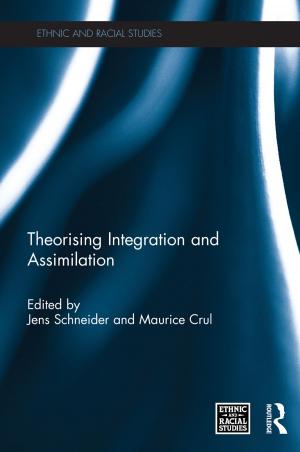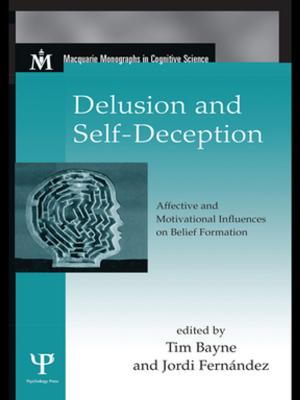| Author: | Bernhard Weiss | ISBN: | 9781317489856 |
| Publisher: | Taylor and Francis | Publication: | December 18, 2014 |
| Imprint: | Routledge | Language: | English |
| Author: | Bernhard Weiss |
| ISBN: | 9781317489856 |
| Publisher: | Taylor and Francis |
| Publication: | December 18, 2014 |
| Imprint: | Routledge |
| Language: | English |
Michael Dummett's approach to the metaphysical issue of realism through the philosophy of language, his challenge to realism, and his philosophy of language itself are central topics in contemporary analytic philosophy and have influenced the work of other major figures such as Quine, Putnam, and Davidson. This book offers an accessible and systematic presentation of the main elements of Dummett's philosophy. This book's overarching theme is Dummett's discussion of realism: his characterization of realism, his attack on realism, and his invention and exploration of the anti-realist position. This book begins by examining Dummett's views on language. Only against that setting can one fully appreciate his conception of the realism issue. With this in place, Weiss returns to Dummett's views on the nature of meaning and understanding to unfold his challenge to realism. Weiss devotes the remainder of this book to examining the anti-realist position. He discusses anti-realist theories of meaning and then investigates anti-realism's revisionary consequences. Finally, he engages with Dummett's discussion of two difficult challenges for the anti-realist: the past and mathematics.
Michael Dummett's approach to the metaphysical issue of realism through the philosophy of language, his challenge to realism, and his philosophy of language itself are central topics in contemporary analytic philosophy and have influenced the work of other major figures such as Quine, Putnam, and Davidson. This book offers an accessible and systematic presentation of the main elements of Dummett's philosophy. This book's overarching theme is Dummett's discussion of realism: his characterization of realism, his attack on realism, and his invention and exploration of the anti-realist position. This book begins by examining Dummett's views on language. Only against that setting can one fully appreciate his conception of the realism issue. With this in place, Weiss returns to Dummett's views on the nature of meaning and understanding to unfold his challenge to realism. Weiss devotes the remainder of this book to examining the anti-realist position. He discusses anti-realist theories of meaning and then investigates anti-realism's revisionary consequences. Finally, he engages with Dummett's discussion of two difficult challenges for the anti-realist: the past and mathematics.















